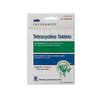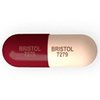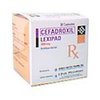 | Ampicillin (Ampen) Active Ingredient: Acillin Ampicillin is used to treat many different types of infections caused by bacteria, such as ear infections, bladder infections, pneumonia, gonorrhea, and E. coli or salmonella infection. Other names for this medication: Acmecilin, Agrocillina, Albipen, Albipenal, Alfasid, Alfasilin, Allégrocine, Alphapen, Alpovex, Ambigel, Ambiopi, Amblosin, Amfipen, Aminoxidin-sulbactam, Amipenix, Amp equine, Ampecu, Ampen, Ampenina, Ampexin, Ampi, Ampibactan, Ampibenza, Ampibex, Ampibos, Ampicaps, Ampicare, Ampicat, Ampicher, Ampicil, Ampicilin, Ampicilinã Show all |
INDICATIONS
Ampicillin is used for treating infections caused by certain types of bacteria. Ampicillin is a penicillin antibiotic. It works by killing sensitive bacteria by interfering with formation of the bacteria's cell wall while it is growing. This weakens the cell wall and it ruptures, resulting in the death of the bacteria.
INSTRUCTIONS
Use Ampicillin as directed by your doctor.
- Take Ampicillin by mouth at least one-half hour before or 2 hours after eating.
- Take Ampicillin with a full glass of water (8 oz/240 mL).
- Take Ampicillin on a regular schedule to get the most benefit from it. Taking Ampicillin at the same time each day will help you remember to take it.
- To clear up your infection completely, use Ampicillin for the full course of treatment. Keep using it even if you feel better in a few days.
- If you miss a dose of Ampicillin, take it as soon as possible. If it is almost time for your next dose, skip the missed dose and go back to your regular dosing schedule. Do not take 2 doses at once.
Ask your health care provider any questions you may have about how to use Ampicillin.
STORAGE
Store Ampicillin at room temperature, between 59 and 86 degrees F (15 and 30 degrees C), in a tightly closed container. Store away from heat, moisture, and light. Keep Ampicillin out of the reach of children and away from pets.
Do NOT use Ampicillin if:
- you are allergic to any ingredient in Ampicillin or to any other penicillin antibiotic (eg, amoxicillin)
- you are taking a tetracycline antibiotic (eg, doxycycline)
- you have mononucleosis ("mono")
- you have recently received or will be receiving live oral typhoid vaccine.
Contact your doctor or health care provider right away if any of these apply to you.
Some medical conditions may interact with Ampicillin. Tell your doctor or pharmacist if you have any medical conditions, especially if any of the following apply to you:
- if you are pregnant, planning to become pregnant, or are breast-feeding
- if you are taking any prescription or nonprescription medicine, herbal preparation, or dietary supplement
- if you have allergies to medicines, foods, or other substances
- if you have a stomach infection or diarrhea
- if you have had a severe allergic reaction (eg, severe rash, hives, difficulty breathing, dizziness) to a cephalosporin antibiotic (eg, cephalexin) or other beta-lactam antibiotic (eg, imipenem).
Some medicines may interact with Ampicillin. Tell your health care provider if you are taking any other medicines, especially any of the following:
- Tetracyclines (eg, doxycycline) because they may decrease Ampicillin's effectiveness
- Probenecid because it may increase the risk of Ampicillin's side effects
- Allopurinol because the risk of skin rash may be increased
- Anticoagulants (heparin, warfarin) or methotrexate because the risk of their side effects may be increased by Ampicillin
- Aminoglycosides (eg, gentamicin), birth control pills, or live oral typhoid vaccine because their effectiveness may be decreased by Ampicillin.
This may not be a complete list of all interactions that may occur. Ask your health care provider if Ampicillin may interact with other medicines that you take. Check with your health care provider before you start, stop, or change the dose of any medicine.
Important safety information:
- Ampicillin only works against bacteria; it does not treat viral infections (eg, the common cold).
- Be sure to use Ampicillin for the full course of treatment. If you do not, the medicine may not clear up your infection completely. The bacteria could also become less sensitive to this or other medicines. This could make the infection harder to treat in the future.
- Long-term or repeated use of Ampicillin may cause a second infection. Tell your doctor if signs of a second infection occur. Your medicine may need to be changed to treat this.
- If vomiting or diarrhea occurs, you will need to take care not to become dehydrated. Contact your doctor for instructions.
- Mild diarrhea is common with antibiotic use. However, a more serious form of diarrhea (pseudomembranous colitis) may rarely occur. This may develop while you use the antibiotic or within several months after you stop using it. Contact your doctor right away if stomach pain or cramps, severe diarrhea, or bloody stools occur. Do not treat diarrhea without first checking with your doctor.
- Hormonal birth control (eg, birth control pills) may not work as well while you are using Ampicillin. To prevent pregnancy, use an extra form of birth control (eg, condoms).
- Diabetes patients - Ampicillin may cause the results of some tests for urine glucose to be wrong. Ask your doctor before you change your diet or the dose of your diabetes medicine.
- Lab tests, including white blood cell counts and kidney function tests, may be performed while you use Ampicillin. These tests may be used to monitor your condition or check for side effects. Be sure to keep all doctor and lab appointments.
- Use Ampicillin with extreme caution in children younger than 10 years old who have diarrhea or an infection of the stomach or bowel.
- Pregnancy and breast-feeding: If you become pregnant, contact your doctor. You will need to discuss the benefits and risks of using Ampicillin while you are pregnant. Ampicillin is found in breast milk. If you are or will be breast-feeding while you use Ampicillin, check with your doctor. Discuss any possible risks to your baby.
All medicines may cause side effects, but many people have no, or minor, side effects.
Check with your doctor if any of these most common side effects persist or become bothersome:
Inflammation and redness of the tongue; irritation of mouth or throat; mild diarrhea; nausea; second infection; vomiting.
Seek medical attention right away if any of these severe side effects occur:
Severe allergic reactions (rash; hives; itching; difficulty breathing; tightness in the chest; swelling of the mouth, face, lips, or tongue); bloody stools; severe diarrhea; stomach pain/cramps; vaginal irritation or discharge.
This is not a complete list of all side effects that may occur. If you have questions about side effects, contact your health care provider.
 BactrimBactrim is used to treat ear infections, urinary tract infections, bronchitis, traveler's diarrhea, and Pneumocystis carinii pneumonia.as low as $0.39
BactrimBactrim is used to treat ear infections, urinary tract infections, bronchitis, traveler's diarrhea, and Pneumocystis carinii pneumonia.as low as $0.39 KeftabKeftab is used for treating certain bacterial infections.as low as $0.64
KeftabKeftab is used for treating certain bacterial infections.as low as $0.64 TetracyclineTetracycline is used to treat many different bacterial infections, such as urinary tract infections, acne, gonorrhea, chlamydia, and others.as low as $0.32
TetracyclineTetracycline is used to treat many different bacterial infections, such as urinary tract infections, acne, gonorrhea, chlamydia, and others.as low as $0.32 TrimoxTrimox is used to treat many different types of infections caused by bacteria, such as ear infections, bladder infections, pneumonia, gonorrhea, and E. coli or salmonella infection. Trimox is also sometimes used together with another antibiotic called clarithromycin (Biaxin) to treat stomach ulcers caused by Helicobacter pylori infection. as low as $0.38
TrimoxTrimox is used to treat many different types of infections caused by bacteria, such as ear infections, bladder infections, pneumonia, gonorrhea, and E. coli or salmonella infection. Trimox is also sometimes used together with another antibiotic called clarithromycin (Biaxin) to treat stomach ulcers caused by Helicobacter pylori infection. as low as $0.38 CefadroxilCefadroxil is used to treat many different types of infections caused by bacteria.as low as $1.13
CefadroxilCefadroxil is used to treat many different types of infections caused by bacteria.as low as $1.13 FloxinFloxin is used to treat bacterial infections that cause bronchitis, pneumonia, chlamydia, gonorrhea, skin infections, urinary tract infections, and infections of the prostate.as low as $0.42
FloxinFloxin is used to treat bacterial infections that cause bronchitis, pneumonia, chlamydia, gonorrhea, skin infections, urinary tract infections, and infections of the prostate.as low as $0.42